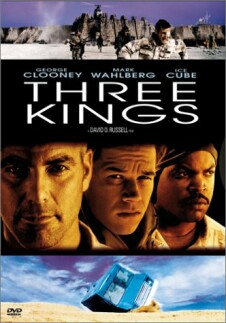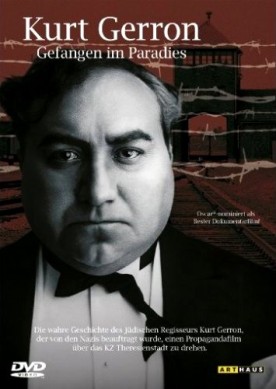Possession
Neil LaBute’s adaptation of A.S. Byatt’s novel, Possession, is a real disappointment. LaBute has the enviable quality in a director of being interesting even when he is bad, and you would think that the novel, a highbrow version of a Harlequin romance, could only be improved by the sort of emotional astringencies we associate with LaButism. For a start, he gets rid of Ms Byatt’s acres of Victorian pastiche, allegedly the writings of her two 19th century lovers, the poets Randolph Henry Ash (Jeremy Northam) and Christabel LaMotte (Jennifer Ehle) — which most readers will have skipped anyway.
Yet, surprisingly, in telling the story of the discovery of this affair by two young academics of our own time, and their claim to it as a scholarly “possession,” LaBute has allowed something even worse, if less tedious, to survive in lines like “I have known incandescence and must decline to sample it further,” or “I cannot let you burn me up, nor can I resist you. . .No mere human can stand in a fire and not be consumed.” These stand out in all their awfulness and without a hint of irony.
Nor are they the worst of the writing, a collaborative effort by David Henry Hwang, Laura Jones and Mr LaBute. Although their Victorians don’t look or talk very much like Victorians, the modern Britons are even less plausible. The ludicrous caricature of Fergus Wolff (Toby Stephens), one of the bad guys, in talking to the American hero, Roland Michell (Aaron Eckhart) says things like: “What is it that you Americans say? How’s it hanging?” or “She thicks men’s blood with cold — or, if you prefer the American vernacular, she’s a real ball-breaker?” Then, in mouthing to Roland the platitude about “publish or perish” (which is much more an American phenomenon than a British one) he adds mischievously: “Or in your case, perish or perish.”
It’s not that the Brits wouldn’t be this rude to someone they didn’t like, but they would be rude in more creative, more ironic ways. Fergus is really an American stereotype of the la-di-dah, oh-so-superior Englishman who looks down his nose at all Americans — as do virtually all the English in the film. Roland’s academic superior, Professor Blackadder (Tom Hickey), says of him at one point: “He’s an American, for heaven’s sake; he’s probably out selling drugs.” Even Maude Bailey (Gwyneth Paltrow), Roland’s love interest, begins her acquaintance with him by insulting the land of his birth: “I’ve seen that take-what-you-want attitude in other Americans.”
“What is it with you people and Americans?” he understandably replies, though the question that is more likely to occur is what is it with Neil LaBute and the British — who are great admirers of his work?
It’s not as if one cannot understand the artistic and commercial reasons why Ms Byatt’s Roland has been made into an American, but the bickering about national stereotypes just doesn’t add anything to this story of love among the stacks. More seriously, Mr Eckhart doesn’t look anything like the Roland of the novel, an impecunious scholar and academic hanger-on who has the weedy, apologetic, downtrodden personality that such a person actually would have in real life. LaBute seems to recognize the incongruence of putting this strapping young American in the role and so gives him a rich friend who can lend him a Porsche, in which he looks much more at home.
Gwyneth Paltrow, doing her by-now patented British accent, is also about 50 times more glamorous than she should be in the role of Maude Bailey and so looks even less like a British academic feminist than Eckhart looks like an academic male. You can forgive her a lot because she is so gorgeous, however, and she has to be fairly soignée in order to symbolize, as she does, the academic promised land. But. LaBute should have got Jeremy Davies, the coward from Saving Private Ryan, to play Roland, so that the audience could sense vicariously something of the miraculousness (from the hero’s point of view) of winning the heart of such a paragon. As it is, the two look like any golden couple you might meet on a beach in California, and they get into bed together with American haste and not only at the end, as in the novel.
Nor is my list of complaints about this film exhausted even yet. When Roland and Maude, like Randolph and Christabel before them, sneak away for a naughty weekend in Whitby, North Yorkshire, we see them in a lush forest glen beside a waterfall that is decidedly not a Yorkshire landscape. Thereabouts is actually all desolate moorland, rocks and seacoast. Moreover, LaBute’s idea of the glamor and the money in academic life is absurd. He imagines (admittedly, with more than a hint from Ms Byatt) a whole academic industry devoted to Randolph Henry Ash with the money to employ people to catalogue such things as “how many jars of gooseberry jam did Ash’s wife make in 1850?”
And then there is the importance that Ash is supposed to occupy in the popular imagination.”Can you imagine what would happen if Mr Perfect Husband had this Shakespearean type dark lady thing going?” says Roland to Maude, sounding even less than usual like a scholar — and more than usual like a dunderhead. The fact is that nothing would happen. Victorian specialists, if any could be found today who believed in the existence of Mr Perfect Husbands, would be more inclined to be shocked if there weren’t a mistress than if there were one.
Like LaBute himself, they cherish a common contemporary belief in the secret sexual foundation of Victorian culture. All that “repression” has to be a mask for something else, and this turns out to be what the film is about.Ms Byatt at least gives herself up to the Harlequin romance and plays down the public scandal, a century and a half later, of the affair. But LaBute positively hypes it, as if we were still living in the days of Lytton Strachey’s Eminent Victorians and delighting (as he, perhaps, does delight) in discovering that our idols have feet of clay.
Interestingly, for the director of In the Company of Men, the men in this film have been rather prettied up: Roland’s girlfriend has been cut, so he is not seen as cheating on her with Maude. Rather, he tells us that he’s “off women” (the lawyer leers in LaButian style: “That’s no reason to be OFF women”) on account of having hurt someone badly, while Ash’s adultery with Christabel is excused with the none-too-delicate hint that Mrs Ash (Holly Aird) is not up to the sexual demands of her husband — or, indeed, of anyone else.
And the women are correspondingly darkened. In the novel, Maude’s affair with Fergus Wolff was just a fling, now all but forgotten, whereas in the movie it is still on-going, or just breaking up as Roland comes on the scene. Likewise, the lesbian relationship between Christabel and Blanche (Lena Headey) is much more stressed here, and the suicide of the latter laid much more thumpingly at the door of Christabel, who becomes the Anne Heche of her day.
Perhaps the film should have been called “In the Company of Women.” At any rate, even those who rather guiltily enjoyed the contemporary romance of the novel will (I think) find little to like in the film version.
Discover more from James Bowman
Subscribe to get the latest posts to your email.








